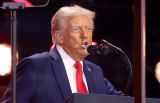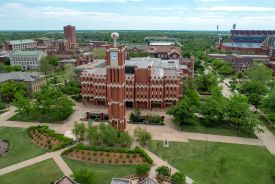A new study shows Americans are exercising more, but the nation is still fighting to control obesity, the Los Angeles Times reported.
The data published Wednesday by researchers at the University of Washington's Institute for Health Metrics and Evaluation showed an increase in physical activity over the past decade.
From 2001 to 2011, the percentage of women exercising sufficiently rose from 50.7 percent to 59.2 percent. Men showed an increase from 59.4 percent to 61.3 percent in the same timeframe.
Despite the increase in exercise, obesity levels in every county of California rose over the decade. National rates also rose, but some experts suggest those rates are leveling off.
"There has been a lot of progress on physical activity," Christopher Murray, lead author of the study told the Los Angeles Times. "But we probably also need to do more. There are still more calories coming in ... than calories going out in physical activity."
Robert Lustig, a neuroendocrinologist and clinical professor at UCSF School of Medicine said exercise is important for weight loss and disease prevention, but dietary choices is ultimately the best way to do so.
"There is not one study anywhere in the world that shows that exercise causes weight loss," he said, including poor diet also reduces the will to exercise. "The biochemistry drives the behavior."
First Lady Michelle Obama cited the new research at a White House event Wednesday and said it aligned with her weight loss and health campaign.
She said the study "makes clear that poor nutrition is the single greatest cause of preventable diseases."
Despite the study's underwhelming results, Murray and other researchers believe the rise in exercise will lead to healthier lifestyles. Georges C. Benjamin, executive director of the American Public Health Association, said the study's results are ultimately a good omen.
"Exercise has amazing virtues," he said. "It helps prevent cardiovascular disease, build muscle tone and reduce bone loss. It improves mental health, and it reduces stress. ... All of those are vitally important."
© 2025 University Herald, All rights reserved. Do not reproduce without permission.








